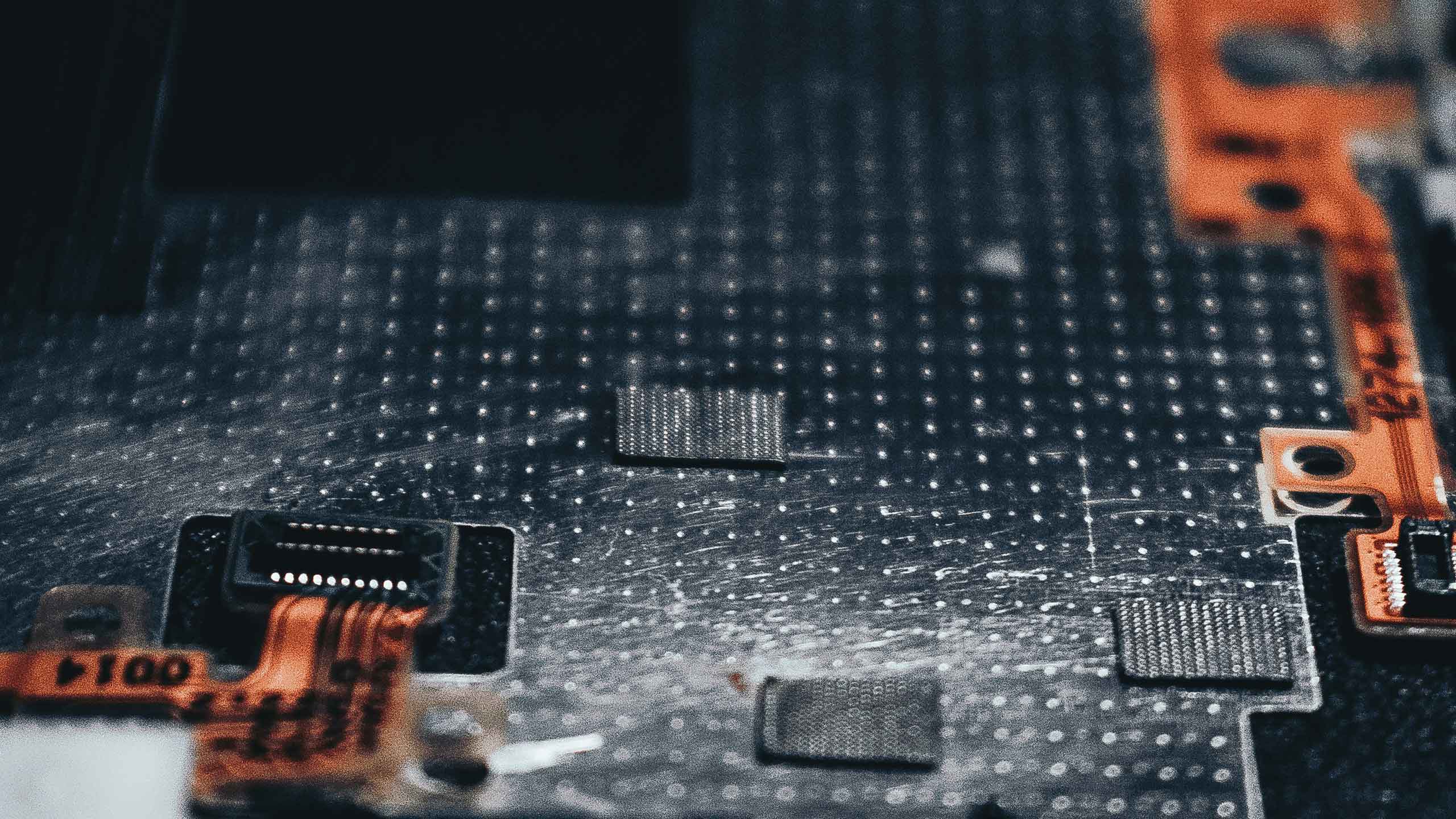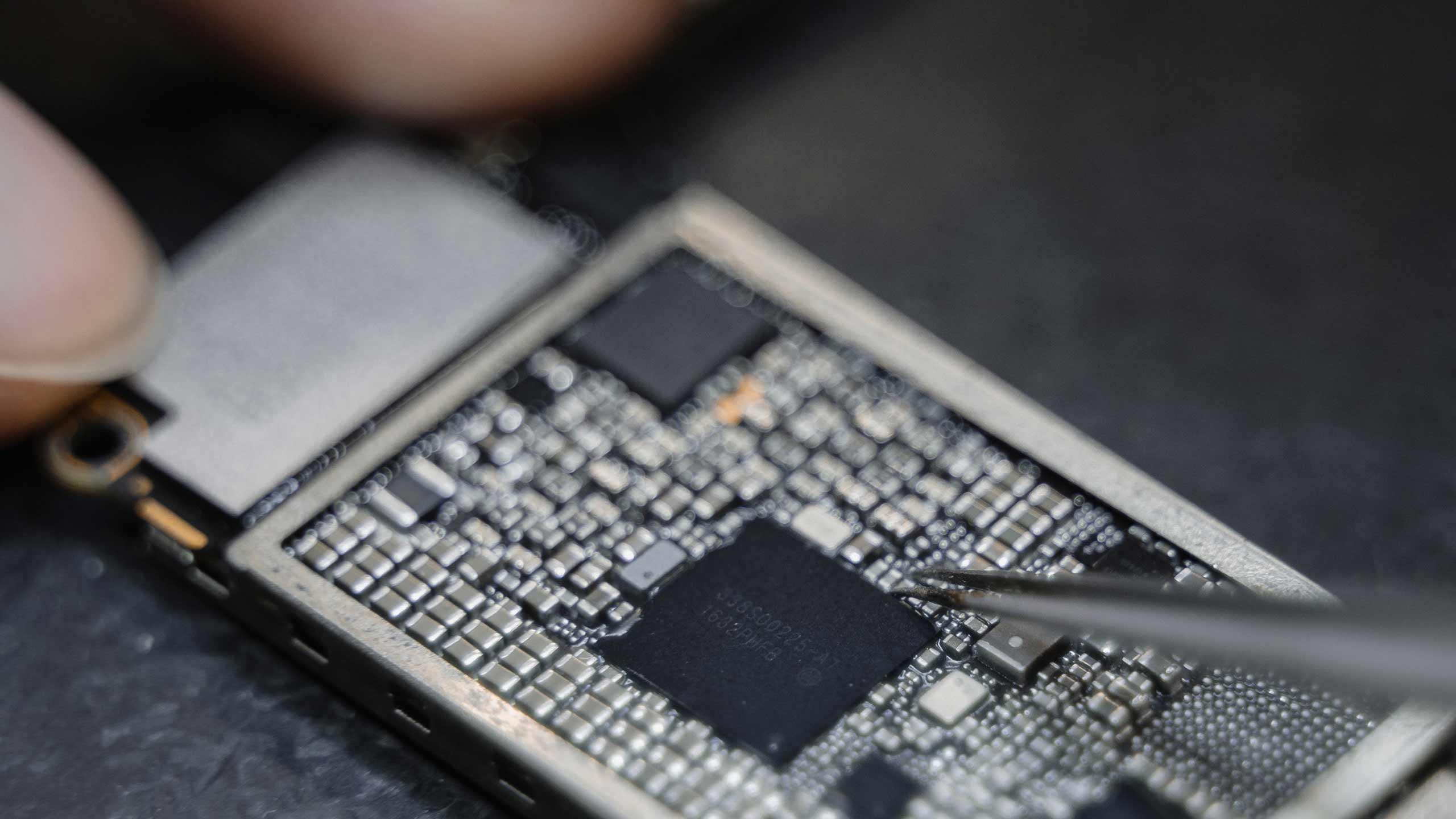Why the UK needs a semiconductor strategy: now!
How the UK is dangerously exposed...

Supply chain disruptions were big news in 2021, in particular for semiconductors.
The effects of a change in demand caused by the Covid-19 pandemic, a reduction in global manufacturing capacity as two key fabs were out of action, and our increasing reliance on semiconductors combined to create significant shortages.
But did you know just how sensitive an item semiconductors were? Whoever controls the choke point can turn off an advanced economy’s life-support system. Ownership and control of key parts of the supply chain have never been more important, creating a new focus on the need to retain national capacity.
The Bessemer Society’s role
The Bessemer Society’s membership - over 130 leaders of HardTech innovation companies - include a significant number working with semiconductors, covering silicon, compound semiconductors, MEMs, 2D materials (like graphene), diamond, piezo, and organic oxides. Their technologies address many of the major markets that are emerging for non-silicon semiconductor materials: for example, 5G and 6G telecoms; autonomous driving and robotics; electric vehicle propulsion; low orbital satellite communications; personal health diagnostics; and the imperatives of Net Zero to improve power efficiency.
Keen to burnish the UK’s credentials, the Government is promoting the UK as a Science Super Power. It has established a Science and Technology Council, chaired by the Prime Minister, to connect the different strands of an Integrated Innovation Strategy. One strand not yet represented, however, is advanced semiconductors, where the Government has tasked the Department for Digital, Culture Media and Sport with conducting a full review and submitting proposals on the UK’s advanced semiconductor strategy. The Bessemer Society is actively engaged as one of several stakeholder bodies, aiming to give a clear voice to what Bessemer member companies and others in the industry are saying.
The potted history of Semiconductor production

The Bessemer Society started drafting a proposal for an Advanced Semiconductor National Strategy, focusing on Compound Semiconductors, early in 2020.
The proposal was sparked by a talk given by Drew Nelson, president of IQE plc, at a Bessemer dinner in February 2020. Drew explained the opportunity for the UK in compound semiconductors - and how we might lose it without government intervention to help secure it.
So ,who is Drew Nelson? Before Drew Nelson co-founded IQE in 1988, he worked at the research laboratories of BT, at which time British Telecom was a world leader in optoelectronics technology, working closely with companies like GEC, Plessey and STC. About the same time, Huawei and TSMC were founded, with strong intent to catch up.
Fast forward to where we are now: Huawei has become the largest supplier of optoelectronic and wireless infrastructure to the world, and was, until 2020, poised to control the supply of most of the 5G network to BT. Meanwhile, GEC, Plessey and STC ceased to exist. The people who used to work for them are now distributed far and wide, with some working to bring forward the new emerging industries, such as compound semiconductors enable.
This optoelectronics anecdote is relevant because the same story is now playing out in semiconductors. TSMC (and others in Taiwan) now control around 65% of the world’s most advanced silicon semiconductor production (and investing billions in new fabs to take advantage of new technologies). With China looming in the background, governments have had to review and re-evaluate technology policy, leading to major economies like Japan, Korea, USA and the EU investing furiously to expand advanced chip manufacturing.
So where is the UK now?
It is unrealistic for the UK to start investing into large-scale silicon chip manufacture – that ship sailed long ago with GEC, Plessey, STC and others.
However, the UK does have the ability to strengthen the compound semiconductor industry. In addition, other advanced semiconductor material-related industries have emerged where the UK has a potential chokehold; or at least, a firm grip of its own.
In an age now where geo-political rivalry is anchored on economic control as much as military supremacy, the UK Government recognises that the laissez-faire model isn’t going to work. Security services have become involved much more deeply in how technology is managed: for example, the National Strategic Security Investment Fund, established in 2018, aims to ensure that any technology advantages can remain within the UK as far as possible.
While the National Security agenda has been tested by Nvidia’s planned acquisition of Arm, Nexperia's acquisition of the only independent mid-to-large volume semiconductor fab in the UK, Newport Wafer Fab, last year has different, and in many ways more profound, implications. Nexperia span out from the Dutch company, NXP Semiconductor, and was then sold immediately to a Chinese interest. Here, however, the ownership point is arguably less important than the removal of an independent fab which could serve as the lynchpin for an integrated supply chain for compound semiconductor-enabled technologies. As it stands currently, the acquisition means that important companies like Rockley Photonics, which are customers of the fab, may no longer be able to do their advanced development work in the UK.

Geo-political pressure and legal measures

As geo-politics has moved to concerns about economic control in key parts of the economy, and as technology becomes an ever more important part of the national security strategy, the Government brought in the National Security and Investment Act 2021 (NSIA) which came into force on 4 January 2022.
The NSIA creates a mandatory notification regime for transactions (such as investments, acquisitions and transactions involving certain assets, such as intellectual property) in sectors where the Government thinks there might be national security implications. In a transaction, the purchaser must notify BEIS of the transaction before it has been completed, otherwise, the transaction will be void and the purchaser will be guilty of a criminal offence.
Semiconductors are one of the sectors covered by the NSIA. In particular, a potential transaction will be caught by the NSIA if the target is involved in the ownership, creation, supply or exploitation of intellectual property of any of the following products or functions:
- Computer processing units (including field central processing units, programmable gate arrays, microcontrollers, system on chips, graphics processor units and specialist processors for Artificial Intelligence applications);
- architectural, logical or physical designs for such units;
- the instruction set architecture for such units;
- code, written in a low-level language, that can control how such units operate;
- and integrated circuits with the purpose of providing memory.
The NSIA gives the secretary of state for Business, Energy and Industrial Strategy (BEIS) a wide range of powers to review any transaction that is notified to it. Once BEIS have accepted a notification, they have 30 working days to decide whether to clear the transaction or call it in for a national security review.
There are no de minimis limits that apply to any such transactions, so any transaction in the relevant sectors must be notified, however small. The language used in some categories of the NSIA is very broad and may catch transactions that do not obviously have national security implications. BEIS anticipate it will receive around 1,800 notifications per year, although we suspect the number will be higher.
Exposing the vulnerabilities
This brings us back to the supply chain. The importance of an integrated supply chain, from both a security and economic point of view, is that it is difficult to offshore, unlike for a single company. Without a supply chain, almost all of the added value is offshored – with the disadvantages this creates for smaller, specialist firms, particularly in terms of communications, time zones, travel distances and the general weakening of management and the control of the technology, including IP leakage.
From a national security point of view, the loss of Newport as an independent fab also leaves the UK vulnerable to a concentration of silicon manufacture capacity under foreign control. Nexperia owns an existing fab in Manchester, formerly owned by NXP. With the acquisition of Newport Wafer Fab, the two fabs account for 70% of silicon chip production in the UK, and the other 30% is owned by Diodes Inc after it acquired Zetex Ltd in 2008. In an extreme scenario, where the UK Government needed, for example, to establish a supply chain for the automotive industry, if the sector was cut off from critical components, it would find it much harder to do.

Conclusion
There is hope, however, that something as far reaching as a national strategy for semiconductors could be agreed upon. In that case, the Bessemer Society can certainly take credit on behalf of its members for having alerted the Government to the importance of the industry at a critical time.
To paraphrase Shakespeare, the opportunity to do something bold has to be taken at the flood - or all our ventures would be threatened with failure.
About the author: Alex Stewart
Alex is the founder and convenor of the Bessemer Society, a national membership network, forum and mutual society for the leaders of companies which are developing technologies that need to be manufactured.
The first half of his career was spent as an investment analyst in the City of London, specialising in the Japanese equities market. In the 1980s, he was one of the first analysts to specialise in researching Japanese technology companies. He has been involved in different aspects of technology brokerage, research, and promotion since that time.


